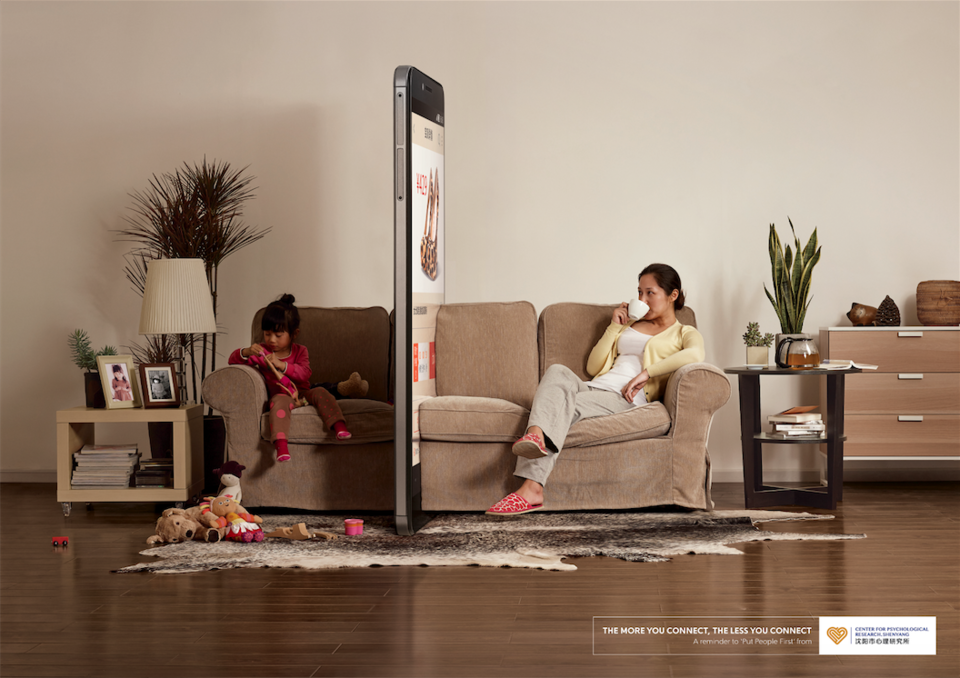We are connected to friends all over the world…and worlds away from the people in the same room.
A co-worker recently shared an unsettling story.
She, her new husband and her 20-something daughter were all inside one rainy evening, hanging out in the living room with the music on. They were all on their phones, doing the usual phone thing, when they realized they were all playing Words with Friends, three separate games going on.
The daughter looked up, laughed, and said “I’m going to get the Scrabble board.”
They spent the next couple of hours at the kitchen table, playing board games, talking and sharing. Their phones lay unattended in the next room. And no one cared.
When my co-worker first told us this story, most of us laughed and recognized that connected-but-disconnected state of being. The more I thought about it though, the less I felt like laughing.
Our phones – amazing at keeping us connected digitally to people who are not physically around – act as huge barriers to real communication with the most important people, the people who share the present moment.
This concept is brilliantly illustrated in a Chinese ad campaign called “Phone Wall,” which Caroline Bologna describes in this article in Huffington Post.
“This is a definite pressure point that Chinese society is facing on its path of rapid development,” Juggi Ramakrishnan of Ogilvy & Mather Shanghai told The Huffington Post, noting that “screen addiction is a growing issue in China.”
Smartphone and social media “seem to permeate all aspects of everyday life — from shopping to business to social interactions,” he continued.
Not only are these screen addictions hurting our kids, they’re damaging our personal and professional relationships too.
“There is an alarming trend of parents ignoring their children of all ages, paying more attention to their phones and tablets than their immediate surroundings,” says Ramakrishnan.
You can see it in any grocery story, public park, restaurant, even in business meetings – everyone in their own little screen world instead of engaged in the world around them. The addiction is insidious, and it’s very real. Several recent business articles include “don’t pull out your phone” as a key to being exceptional.
Really? We need a business writer to tell us that it’s rude to be on your phone when you’re talking to someone face-to-face? Apparently we do, because the advice is everywhere.
Not only are we being rude, we are also making ourselves unhappy by the constant phone connection, according to one expert in the field.
“Professor Paul Dolan, of the London School of Economics, believes that the popularity of iPhones and other smart phones has seen people constantly having their attention drawn away from their nearest and dearest and to the devices instead,” writes Amanda Williams in The Daily Mail.
According to Dolan, “When you switch tasks it requires attention. Paying attention to what you’re doing and who you are with and turning your phone off and enjoying being with your friends is much better for you than constantly checking your phone and checking emails.”
Can turning off your phones truly make you happier? At the very least, you’ll be more focused on the task, or people, at hand, able to enjoy the moment instead of thinking about how this moment will look once it’s posted on Instagram.
As Ramakrishnan reminds us, “The people in our lives should get priority over devices.”
Amen.

